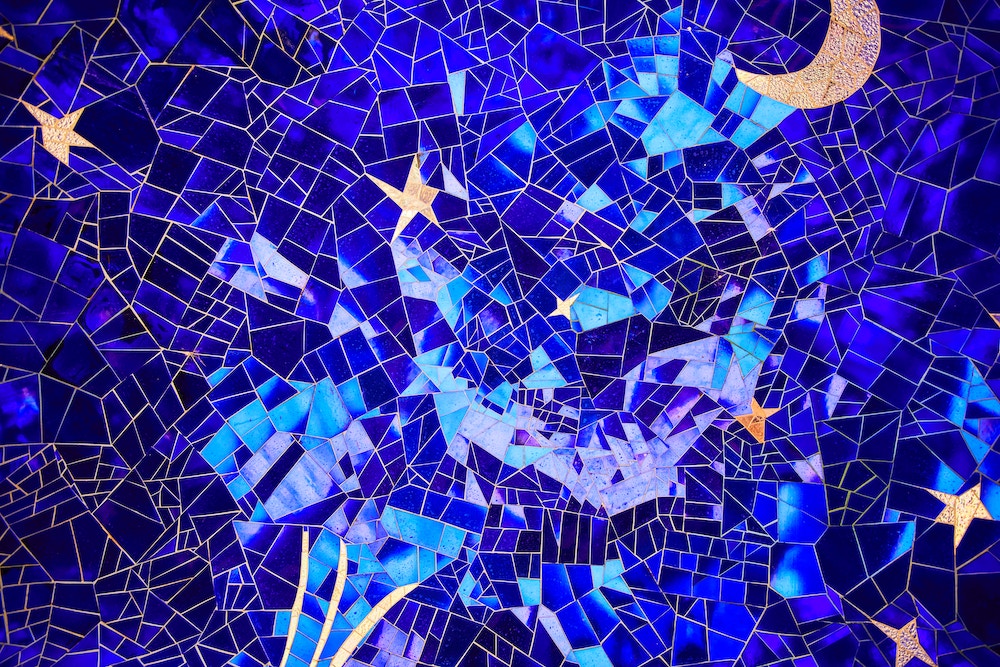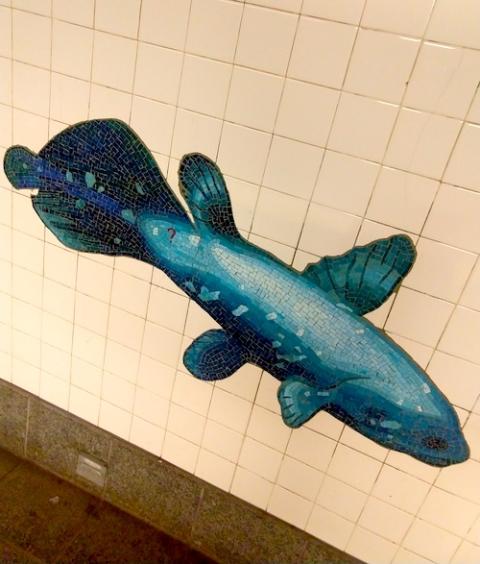
(Unsplash/Patrick Fore)
There's a woman I talk to when I visit a Catholic Worker House every so often. Her hobby is to go up to people, hand them a folded paper star and say, "Here's your star. Open your star to find your word."
Mine was "harmony," a word that resonates deeply lately in my first year in a new career as a teacher. It's a year of stress and chaos, but also of a deep sense of vocation and anxiety about caring for the students around me.
The woman with the paper stars makes them constantly, handing them to people on the street, in line for soup, old friends, strangers. People open them to find words like "bliss," "faith" and "compassion."
I don't have any answers for the political times we live in now, really. And as much as we all talk, I don't know that anybody else does either. The rising tides of hatred and apathy and inequality seem insurmountable, and reinforced daily by political discourse that is locked in stubborn and spiteful camps of opinion. The news is a daily deluge of tragedies, massacres and absurdity. It's hard to keep a sense of faith and hope in our ability to create and maintain a society of mercy.
So I've stopped looking for solutions. I look instead for moments of humanity and tenderness. How do we keep the people around us, in our communities, within and outside of these borders, human and happy? That's my question.
You can't think or talk your way to recognizing humanity and tenderness, as much as I'd like to. It requires going outside and looking around. It requires a posture of prayer to which I am not always accustomed. It requires turning on the radio, hearing the story, and having a moment of patience to ask not, "Who did this?" but, "Who will be harmed? Who will be helped? Who can help? How can I help?" It requires a fresh set of eyes. It requires a willingness to plant a seed of hope that might not grow, but to plant it anyway. This is a story about the people who, whether they know it or not, have planted mysterious and fleeting seeds of hope.
Advertisement
One of my neighbors rides around on a bike with a loudspeaker. Every time he passes me, I hear Clarence "Frogman" Henry croon, "I don't know why I love you, but I do." The line has become a short passing anthem to all the people in this city — I don't know why I love you, but I do. These times are high-stakes, not because of ideas but because of the deep hope we all have that the humans around us can flourish.
Other neighbors sit on street corners, some in large groups that make people jovial, that end for a minute the loneliness of being outside in New York City. Others worry about deportation and house people who are at risk. Others worry about their own gigantic worries that are closer to home — cancer, depression, debt — tending to the worries of loved ones as their own with humor and deep care.

Subway tile fish mosaic (Rebecca Collins Jordan)
A few weeks ago, on the way to work, I walked a few stops up from my usual subway stop, ending up near the Museum of Natural History. Mosaics of sea creatures lined the walls. On one, a person had painted a question mark into the fish's scales. The moment was a revelation to me — that someone would take the time to think of a question and inscribe it (albeit as graffiti) on a wall for others to see. It was an accident that I was even paying attention that morning, forced by slow trains and a sleepy sense of early morning beauty. But I have thought of that fish often. How often do we forget to ask the questions that make us human? How often do we neglect to recognize the sacramental beauty of the streets that is ultimately worth protecting?
I don't have a thesis or a platform, except to say that I believe we all have paper stars of some sort, or seeds to sow if you like that metaphor better. Every day, I plan lessons for my students in the hope that some sense of wonder beyond test anxiety will stick for them. Those are seeds planted. And then I go out, searching again for the others, unknowingly and in anonymous and unique ways, planting reminders of tenderness in a brutal world.
[Rebecca Collins Jordan is an educator in New York City. Originally from Oregon, she is a graduate of Union Theological Seminary and the University of Montana.]
Editor's note: Sign up here and we can send you a note every time a Young Voices column is posted to NCRonline.org so you won't miss any.






